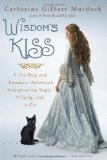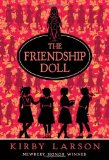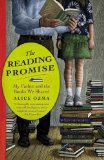Sonderling Sunday – Chapter 9 – Meeting the Sonderlinge
It’s time for Sonderling Sunday! I missed last week because it was my youngest son’s 18th birthday! (Where oh where does the time go?) That reminds me of a funny thing about Germans and birthdays. Did you know that German kids sing “Happy Birthday” in English? Perhaps it was just my landlady’s family, since she grew up around Americans, but I suspect it was more widespread, because the small children who attended this birthday party in 1998 knew the words to the English “Happy Birthday” song.

(The cutie in the bottom right corner is my son, who is now 18 years old.) I believe the birthday girl was 5 years old, and we were so surprised at how well the small children sang in English. I suppose, bottom line, it’s hard to fit Alles gute zum Geburtstag into a nice song.
But back to Sonderling Sunday, the time when I play with language and supply you with delightfully useless phrases to know in German by looking at the translation of James Kennedy‘s The Order of Odd-Fish, Der Orden der Seltsamen Sonderlinge, a truly Sonderbook.
We left off two weeks ago in the middle of chapter 9, on page 86 in English, and Seite 110 auf Deutsch.
Last time, we learned several different translations for “dithering,” as the knights of the Order of Odd-fish discussed Sir Oliver’s six-hundred-thousand-page dissertation on the subject. I still find it interesting and not at all surprising that Germans don’t have as many different words for dithering as English speakers do.
Ah! There’s a lovely paragraph right at the start of this next section, so I’ll start off by quoting the whole thing:
The cockroaches swooped in, snatched away the soup bowls, and served plates heaping with a gooey stew. It was spicy and slimy, and after a few cautious bites, Jo decided she liked it.
That translates as:
Die Kakerlaken stürmten wieder in den Raum, entrissen allen die Suppenschüsseln und servierten Teller mit einem pappigen Eintopf. Er war würzig und schleimig und nach ein paar vorsichtigen Bissen kam Jo zu dem Schluss, dass sie ihn mochte.
Some of the goodies here:
“soup bowls” = Suppenschüsseln
“gooey stew” = pappigen Eintopf (“cardboardy one-pot”)
“slimy” = schleimig (Surely this is where we got the English word?)
Going on, there are more wonderfully useless phrases about being wonderfully useless:
“properly dubious” = angemessen zweifelhaft
“unreliable” = unzuverlässig
“useless” = nutzlos
“out of date” = überholt (shorter in German!)
“contradictory” = widersprüchlich (“speech against”)
“we never publish anything misleading” = wir niemals irgendetwas veröffentlichen, das auf eine falsche Fährte führen könnte (“we never publish anything that can send one on a wrong trip”)
“deliberately misleading” = vorsätzlich Irreführendes (See the root for trip still in there?)
I thought it was funny that with this sentence the German translator did not dither as much as in English:
“Which, er, isn’t too far, actually, sometimes.” = Was, genau genommen, manchmal nicht sonderlich weit ist. (“Which, strictly speaking, sometimes is not especially far.”)
This one sounds better in German:
“an unreliable reference book” = ein unzuverlässiges Lexikon
Here’s a fun one I didn’t know before:
“at once” = schlagartig
“Jo’s stomach dropped.” = Jo plumpste der Magen in die Kniekehlen. (“Jo flopped her stomach in the hollow of the knees.”)
“Rumors, leads, myths, things that are maybe true, maybe not.” = Gerüchte, vermutungen Mythen, Dinge, die vielleicht wahr sind, vielleicht aber auch nicht.
“whiskers” = Backenbart
“hiccups” = Schluckaufs
“dubious” = fragwürdig (“question worthy”)
“discredited metaphysics” = verrufene Metaphysiken
“It is spectacularly tiresome!” = Es ist ungeheuer ermüdend! (“It is monstrously tiresome!”)
“Some of my research positively sparkles with dullness.” = Etliche meiner Metaphysiken funkeln förmlich vor Trübsinn. (“Some of my metaphysics sparkles formally with gloom.”)
“arcane drudgery” = uralter Trübsal (“ancient sorrow”)
I like this translation:
“Oh ho ho, oh no, oh no!” = Nein und nochmals nein!” (“No, and again no!”)
“Jo couldn’t help but smile.” = Jo musste unwillkürlich lächeln. (“Jo must involuntarily smile.”)
“supreme distaste” = überlegenem Abscheu
“Jo gritted her teeth.” = Jo knirschte mit den Zähnen.
Here’s a nice concise way of putting it:
“wet with sweat” = schwei?nass.
“as Sir Alasdair dissolved into snuffling laughter” = während Sir Alasdair vor Lachen Schniefte (“as Sir Alasdair with laugher sniffed”)
That’s all I have time for tonight! I hope to meet the rest of the Order next week!
Meanwhile, here are some highlights:
Most fun to say: Suppenschüsseln, unzuverlässiges Lexikon, Schluckaufs
Best exclamation: Nein und nochmals nein!
Best figure of speech: Jo plumpste der Magen in die Kniekehlen.
Most concise: schwei?nass.
Bis nächste Woche!


